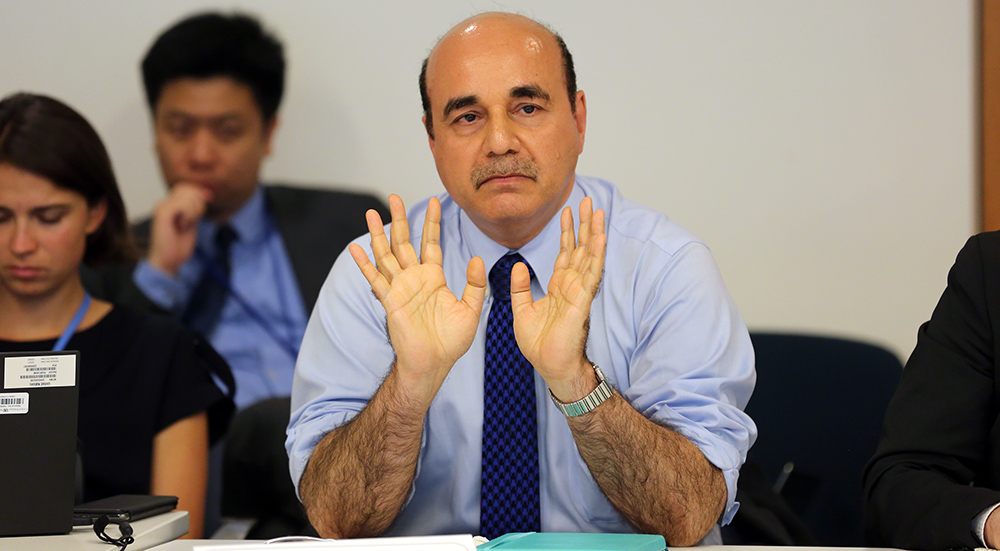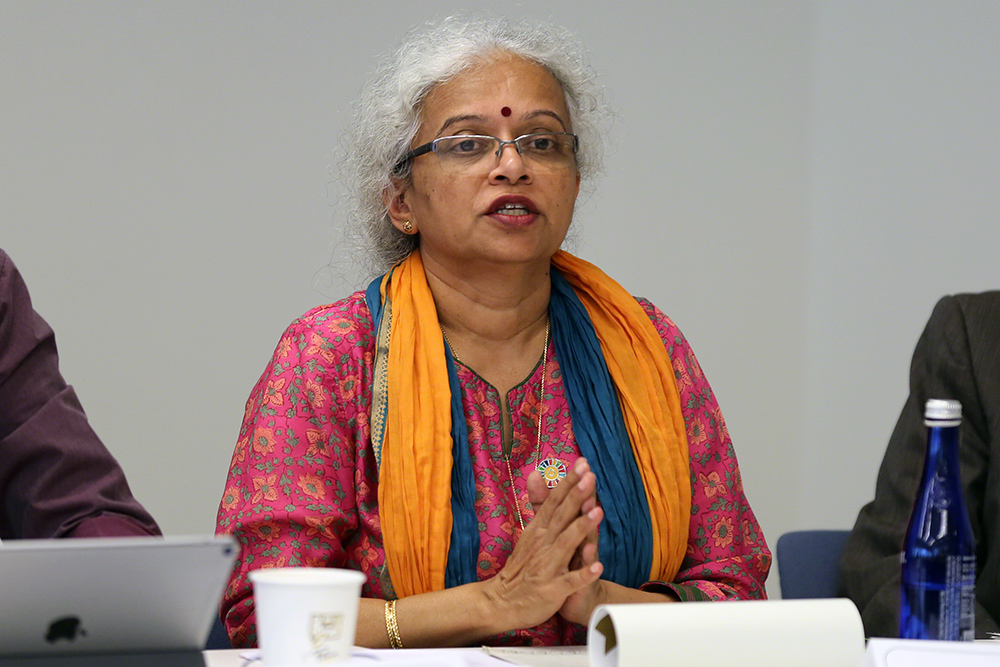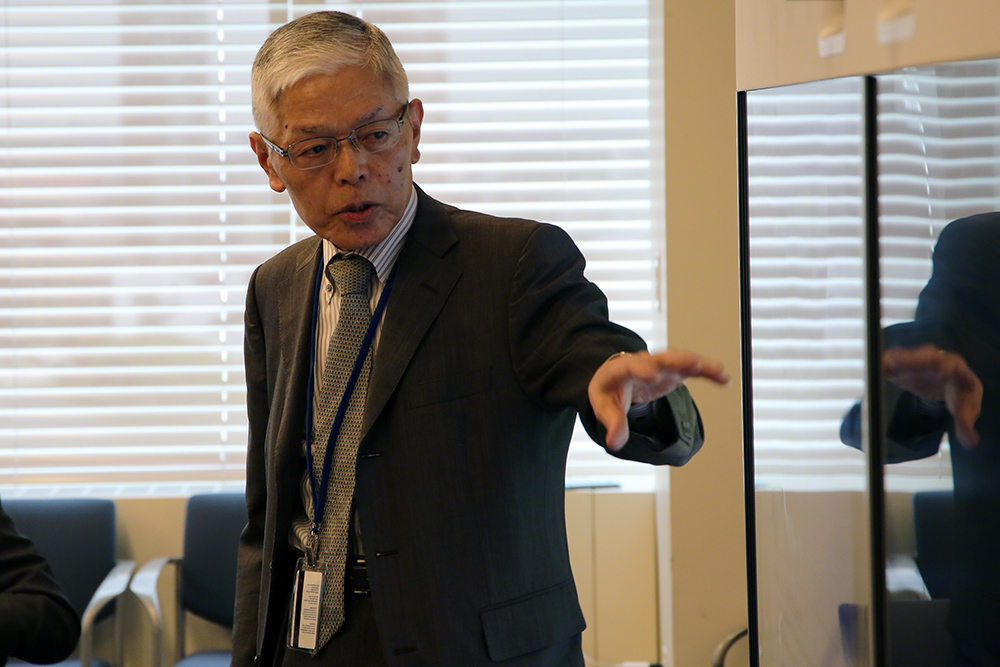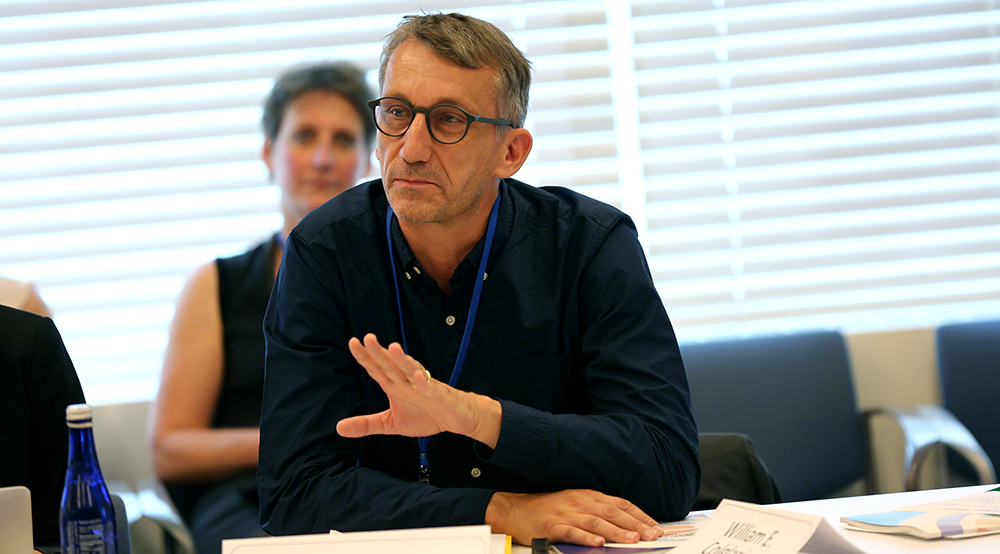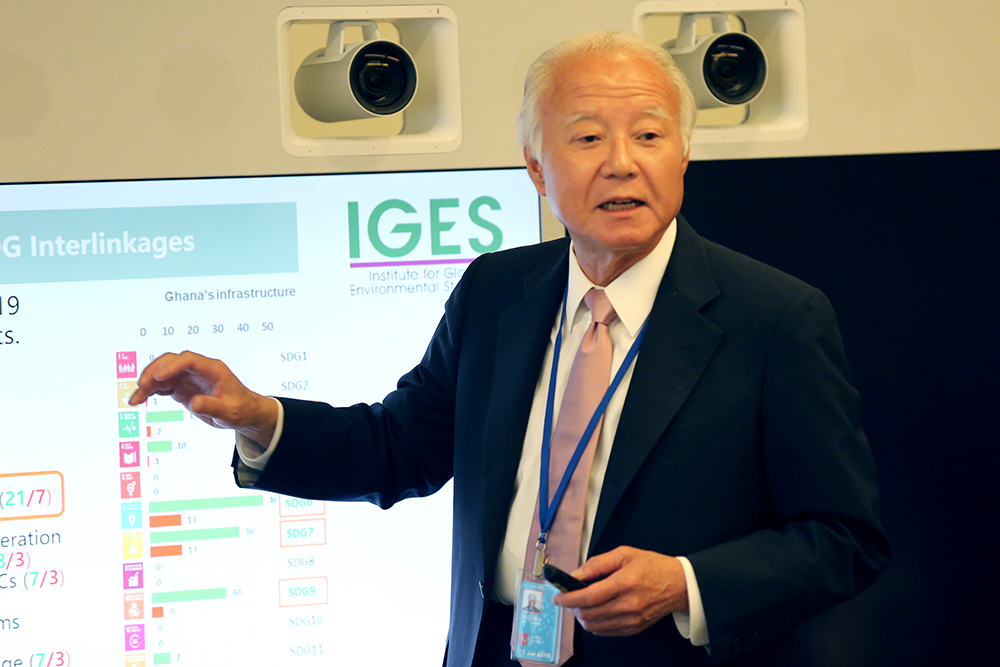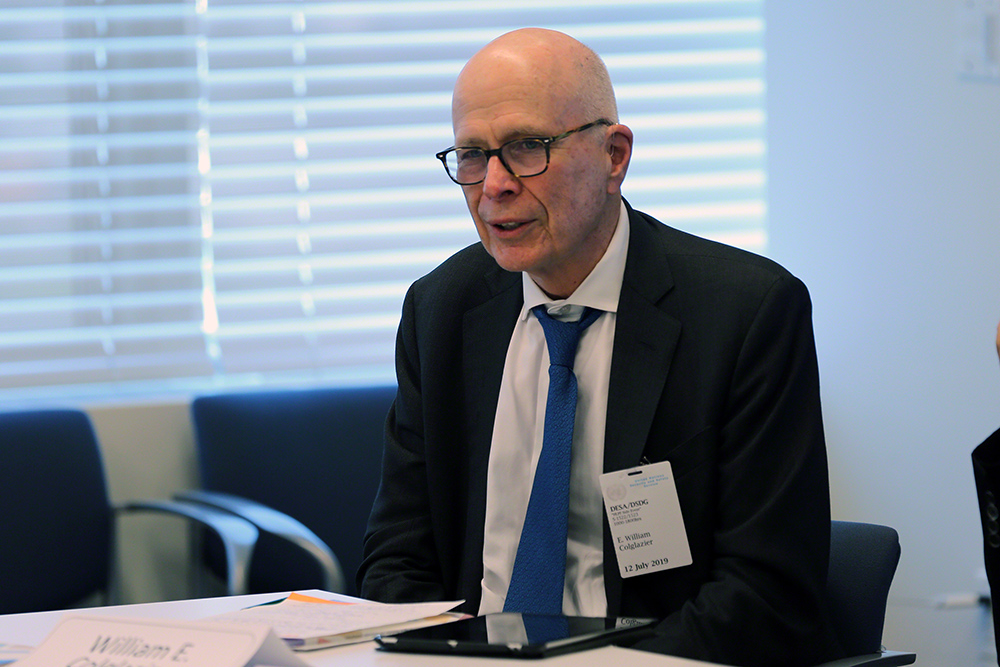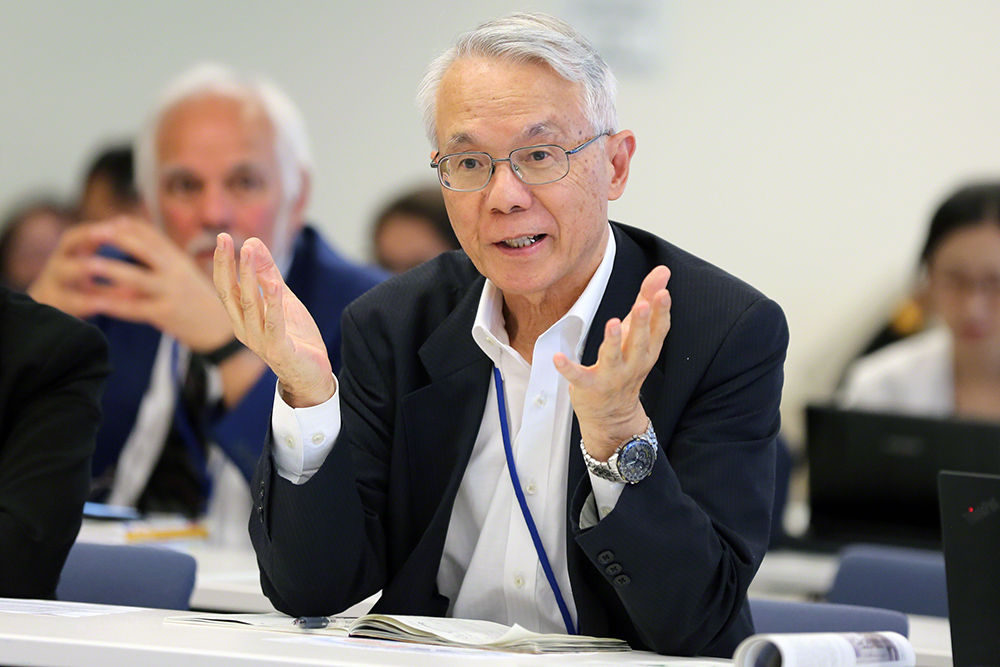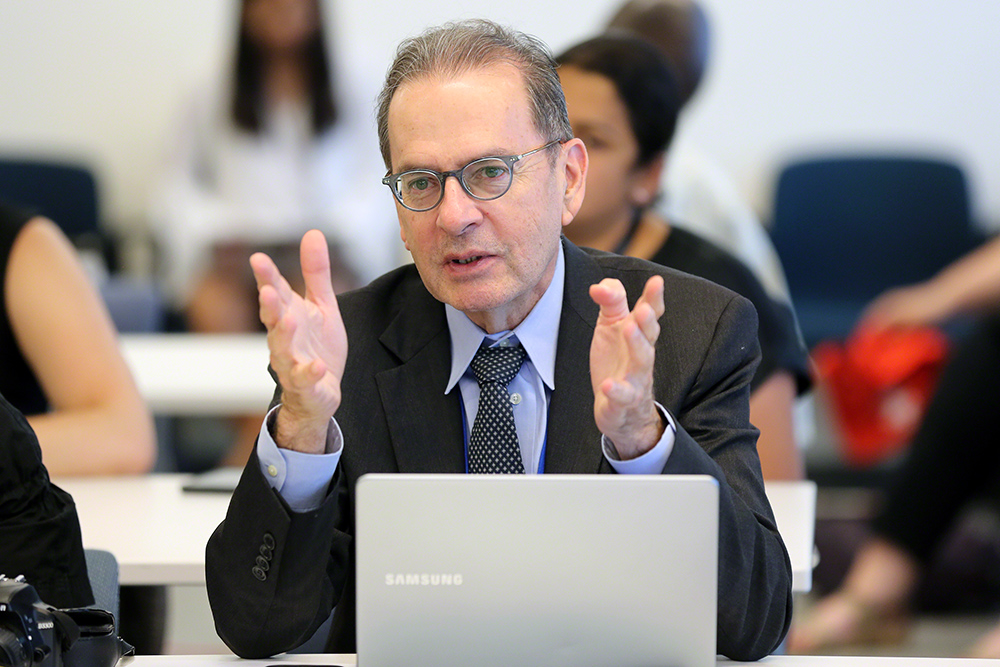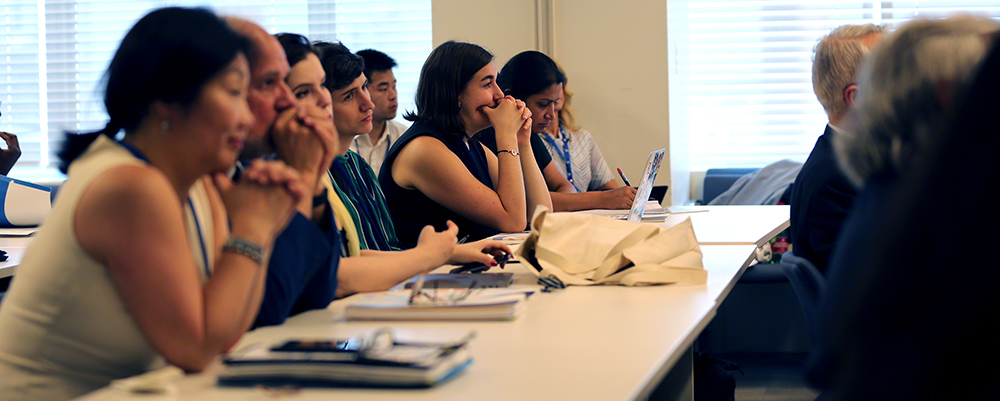Summary
Events Covered on Friday, 12 July 2019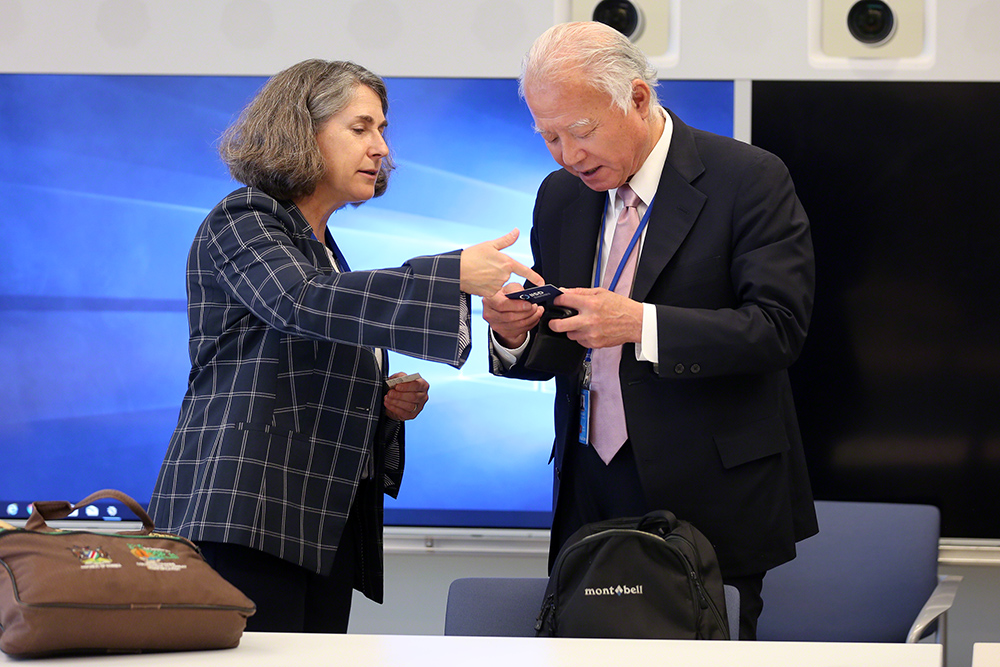
 The following events were covered by IISD Reporting Services on Friday, 12 July 2019:
The following events were covered by IISD Reporting Services on Friday, 12 July 2019:
Photos by IISD/ENB | Mike Muzurakis
For photo reprint permissions, please follow instructions at our Attribution Regulations for Meeting Photo Usage Page
From Science to Implementation: Strengthening the Science Policy Interface (SPI) to Integrate Climate Change, Resilience, and the SDGs
Presented by the Institute for Global Environmental Strategies (IGES)
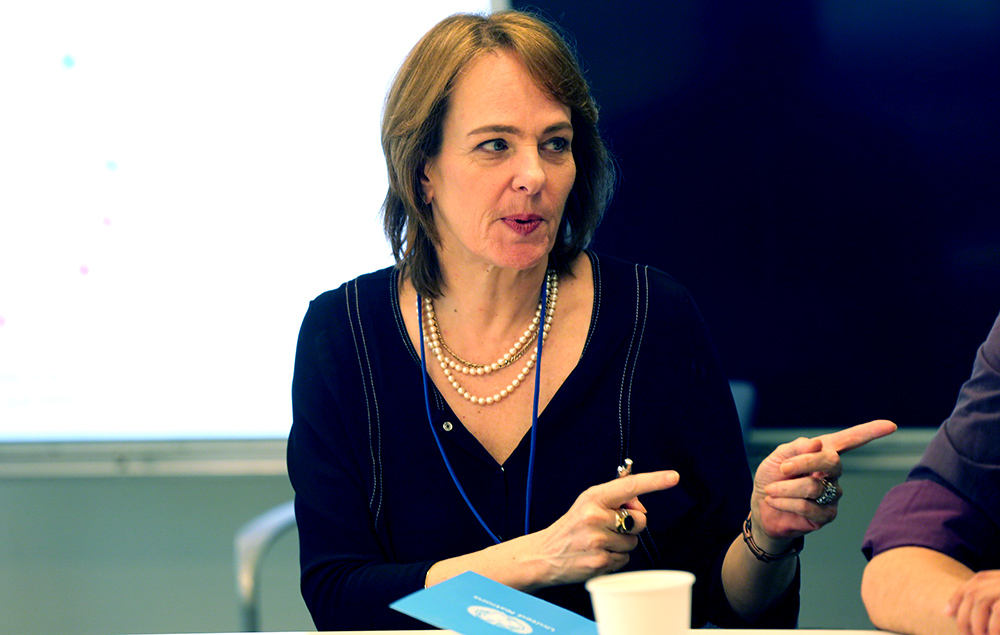
Key messages:
- The Intergovernmental Panel on Climate Change (IPCC) Special Report on Global Warming of 1.5°C highlights that leveraging synergies and avoiding trade-offs between climate-action and development priorities can help limit global warming to safe levels;
- Knowledge co-creation is essential to enhance science-policy dialogues and local communities should be included in these dialogues; and
- Better communication and coordination are vital tools for strengthening the Science Policy Interface (SPI) and combating climate change.
This side event shared recommendations on how to integrate climate change provisions from the Paris Agreement, the Sendai Framework for Disaster Risk Reduction, and the Sustainable Development Goals (SDGs) by strengthening SPI.
Event summary:
Junichi Fujino, IGES, moderated the event.
Opening the discussion, Kazuhiko Takeuchi, IGES, underlined the Regional/Local Circulating and Ecological Sphere (CES) approach, put forward by Japan’s Fifth Basic Environment Plan. He explained this framework advances a low-carbon, self-reliant, and decentralized society based on living in harmony with nature, while reinforcing other sustainability concepts, such as the circular economy.
Heide Hackmann, International Science Council (ISC), underscored the importance of systems thinking for enhanced synergies in the field of sustainability. She recommended that policy makers develop more analysis at all levels of governance to avoid current fragmentation, urging scientists to “keep pushing” for integration of natural and social sciences.
Nebojsa Nakicenovic, International Institute for Applied Systems Analysis (IIASA), argued that the way toward a climate solution is not uniquely in the climate sphere but also within the framework of the SDGs, which calls for more meaningful partnerships to bridge the science-policy gaps.
Lynn Wagner, International Institute for Sustainable Development (IISD), stressed the need to adopt a “mission-oriented science” when developing research agendas in order to respond to “real world problems.” She recommended further attention to solutions journalism, which involves rigorous and compelling reporting about responses to social problems that can empower people to be part of the solution, as they focus on “how” to achieve solutions, instead of on the barriers.
Pungkas B. Ali, Indonesia, discussed how to translate science to policy, reiterating that breaking the silos among sectors and governmental agencies remains a priority. He showed how Indonesia is increasing energy efficiency and, at the same time, cutting greenhouse gas emissions and minimizing extreme poverty.
Jamil Ahmad, UN Environment Programme, stressed UN’s efforts to focus on coordination “above all,” when supporting the implementation of SDGs, recalling the five pillars of Agenda 2030: people, prosperity, planet, peace and justice, and partnership, which guides the current UN mission.
During the Q&A session, one participant recalled that not only scientists “hold the truth,” calling for the inclusion of community leaders and democratic processes when trying to bridge science-policy gaps. Reinforcing this point, another participant drew attention to the “arrogance” of scientists, while noting the need to review the incentives for effective policy-dialogue, currently considered weak.
In closing, Takeuchi underscored the importance of science-policy interfaces, urging for more support to coordination mechanisms.
Event conclusions:
Panelists and participants underscored the importance of knowledge co-creation, going beyond scientists and policy makers to also include the knowledge of local communities. They also called for enhanced partnerships, emphasizing the role of academia and citizens in the process of achieving the SDGs.
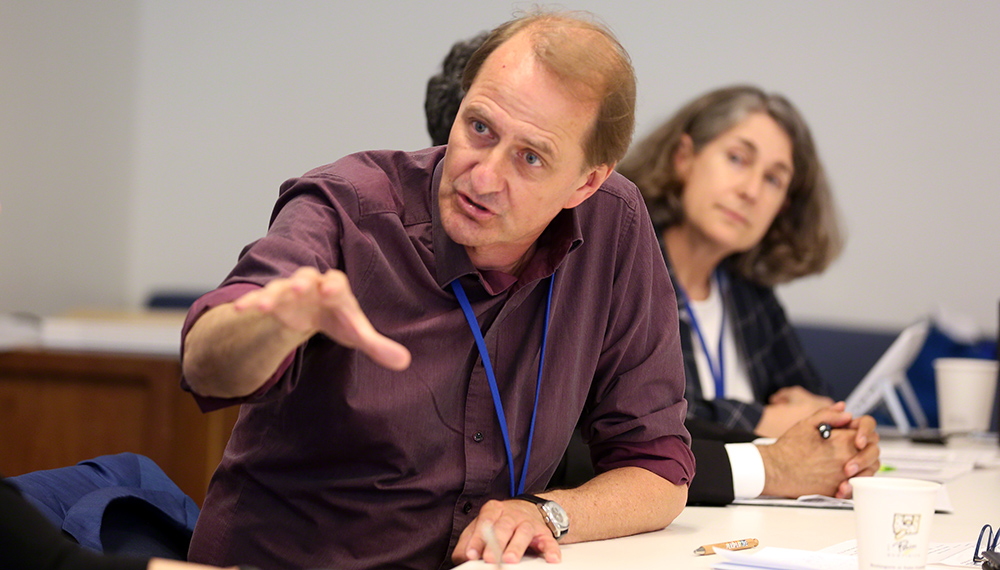
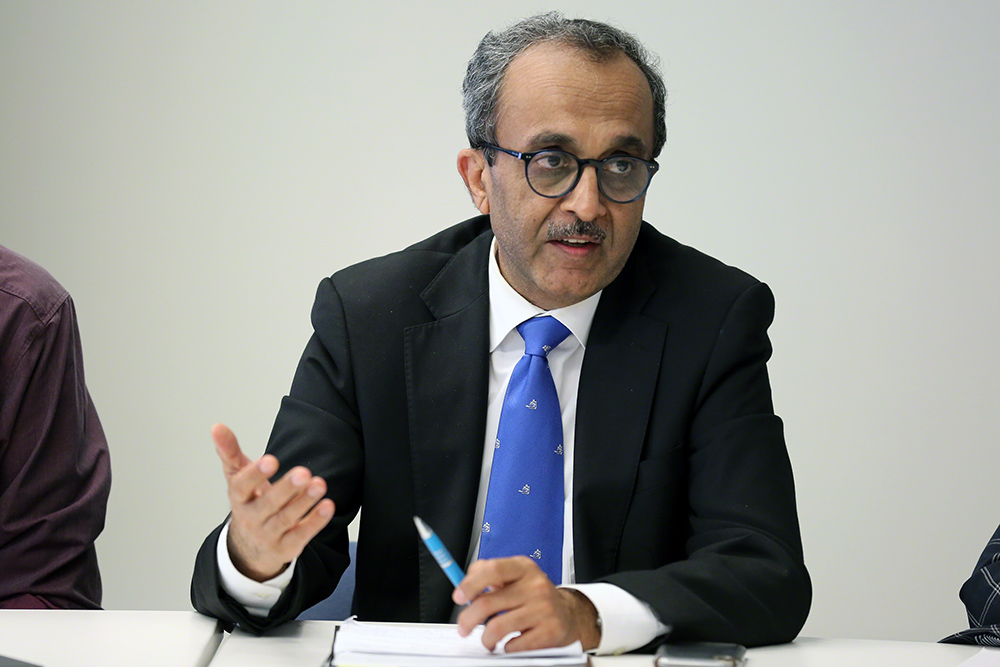
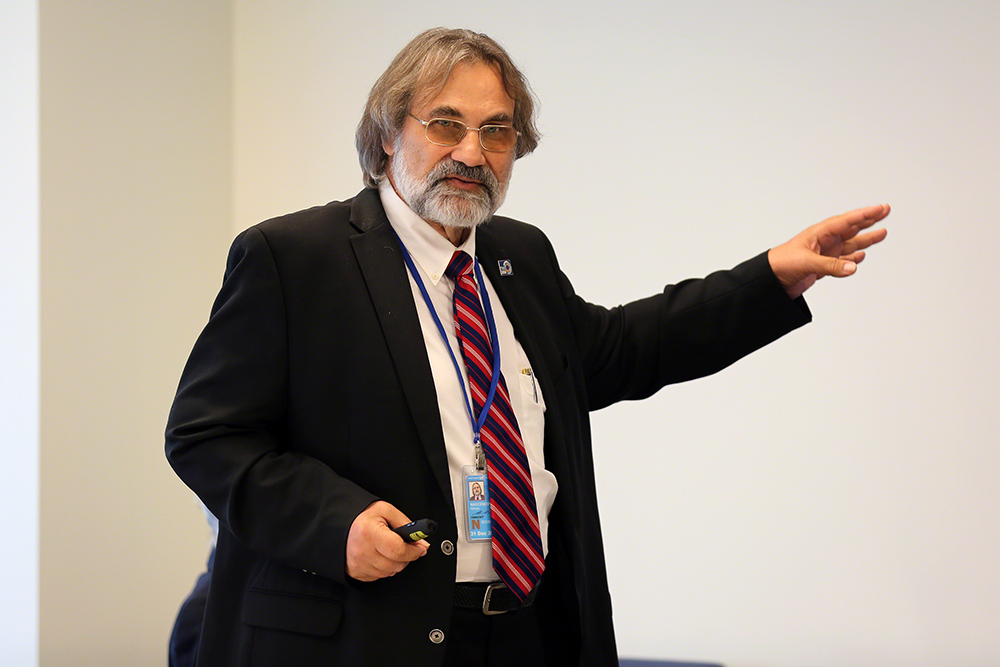
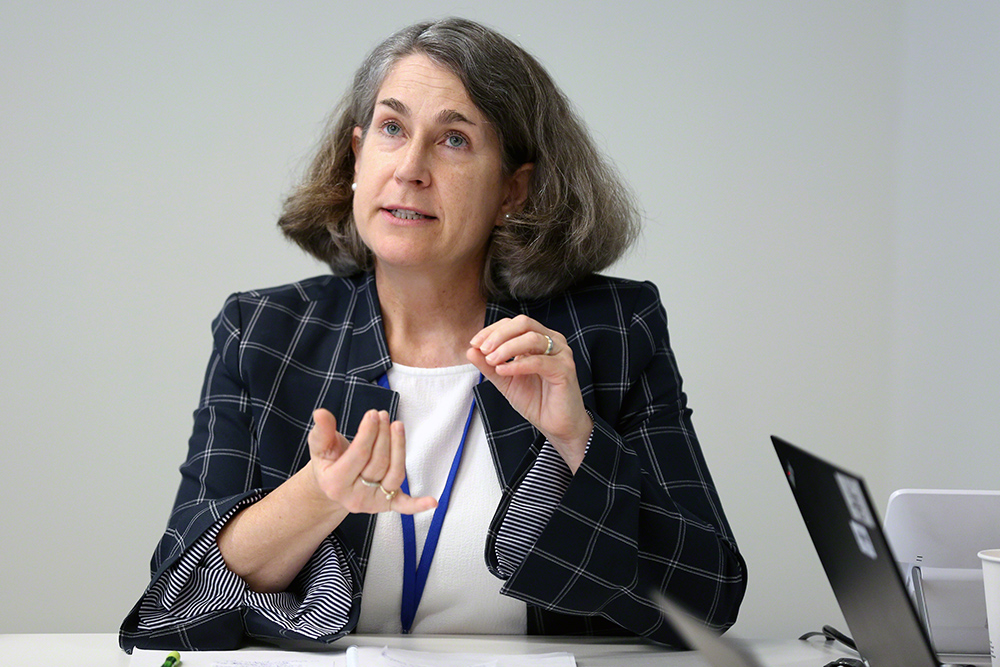
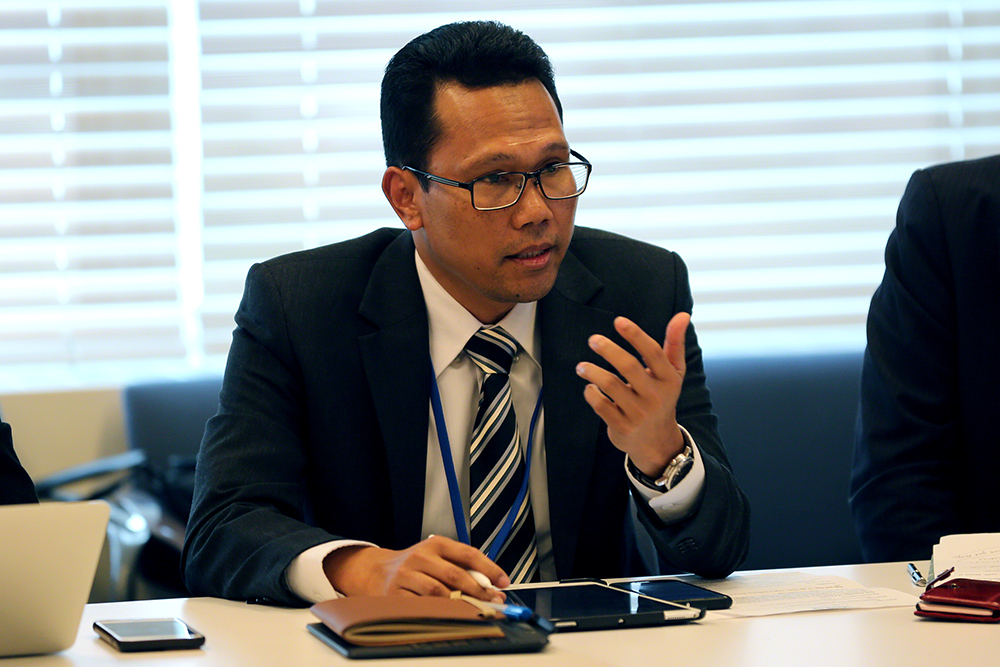
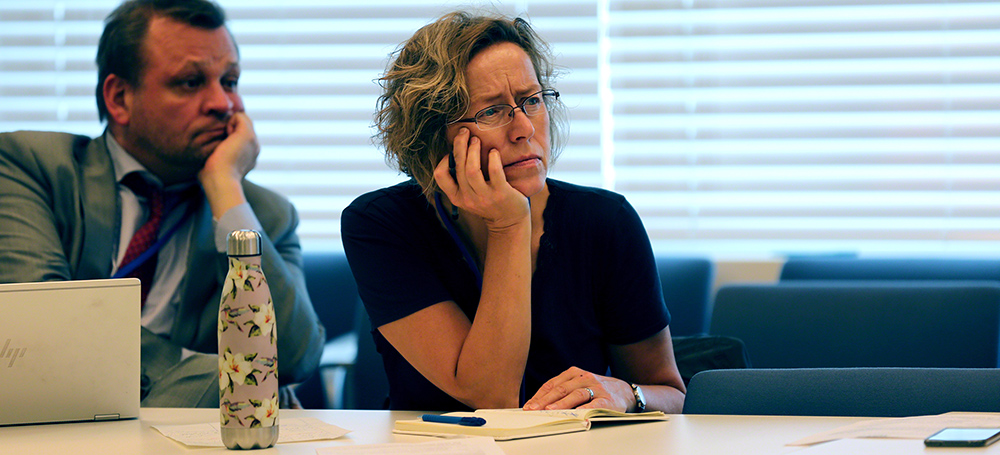

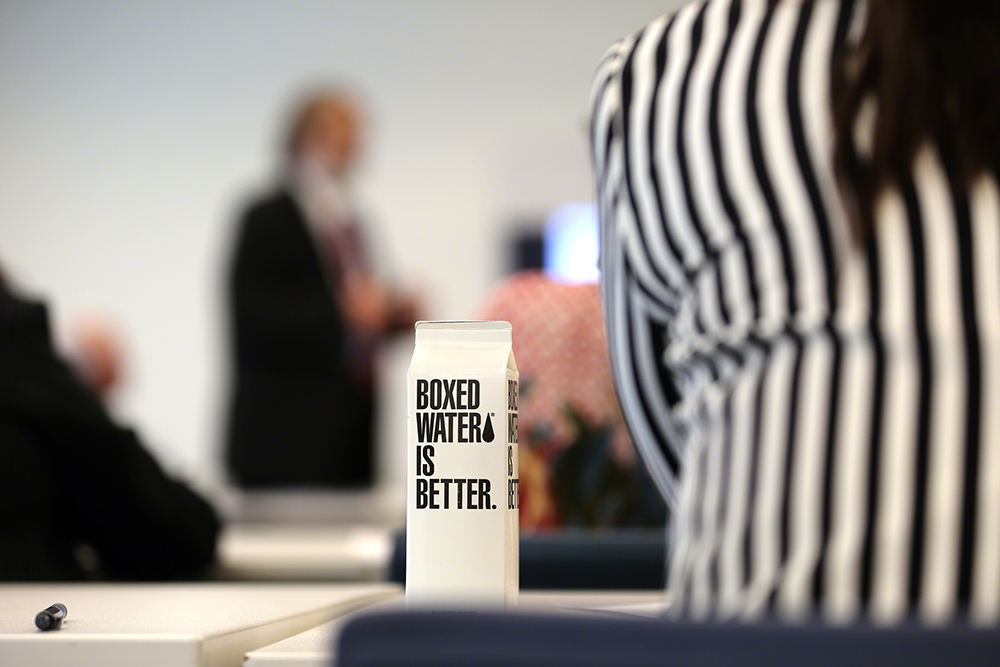
The Digital Revolution and Sustainable Development: Opportunities and Challenges
Presented by the International Institute for Applied Systems Analysis (IIASA) and The World in 2050 (TWI2050) research initiative
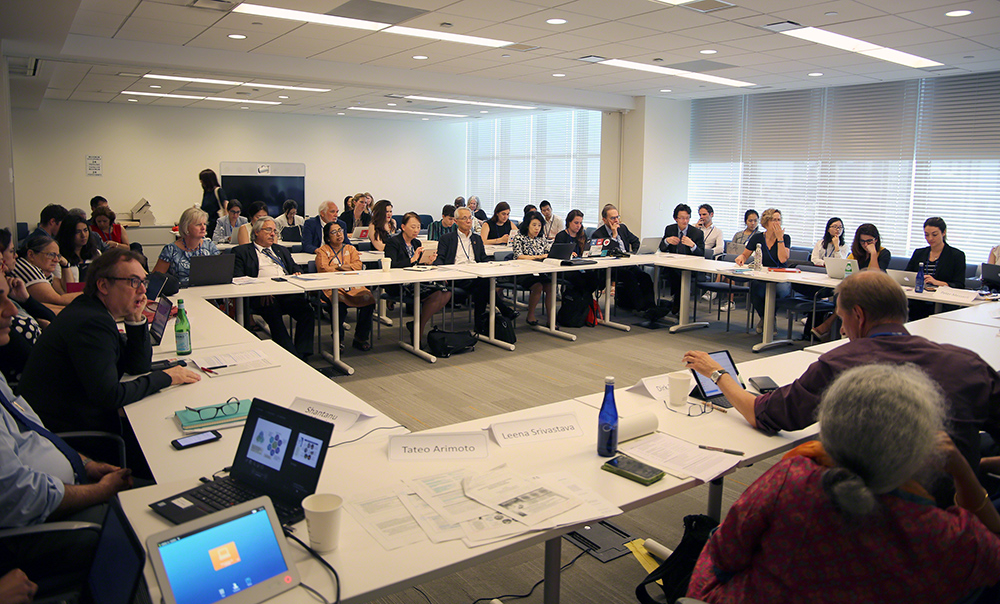
Key messages:
- Digital Revolution is a driving force of societal transformation;
- Digital transformation will likely change the interpretation of the sustainability paradigm, and yet, digitalization remains absent in the 2030 Agenda for Sustainable Development and in the Paris Agreement;
- Transformation towards sustainability must be harmonized with the threats, opportunities, and dynamics of the Digital Revolution, the goals of the 2030 Agenda, and the Paris Agreement; and
- The World in 2050 (TWI2050) research initiative report titled ‘Digital Revolution and Sustainable Development: Opportunities and Challenges’ describes how digitalization can transform the world, explains the multiple effects of digital systems, and anticipates far-reaching structural changes to create a basis for sustainability transformations.
This side event launched the newly published TWI2050 report and promoted a debate on major opportunities and challenges that digital technologies pose to achieving the Sustainable Development Goals (SDGs).
Event Summary:
Nebojsa Nakicenovic, IIASA, moderated a panel that explained how the TWI2050 report bridges the gaps between digitization and sustainability, outlining the main six key transformation areas:
- human capacity and demography through further improvements of education and healthcare;
- responsible consumption and production through the adoption of a circular economy approach and reducing demand;
- decarbonization of energy systems through energy efficiency, more renewables and electrification;
- more efficient and sustainable food systems by increasing agricultural productivity and access to nutritional food and clean water for all, while protecting the biosphere and the oceans;
- smart cities development through smart infrastructure, decent housing and high connectivity; and
- digital revolution including science, technology, and innovations as a powerful driver to support sustainable development.
Panelists highlighted that the TWI2050 report provides fact-based science to support policy agendas and the SDGs implementation, underlining digitalization as a gap of the 2030 Agenda.
A panelist highlighted that data driven interdisciplinarity and the development of national data platforms, such as the African Open Science Platform, are priority areas for greater synergies between digitalization and the SDGs. Speakers emphasized how a green economy could be enabled by efforts in digitalization, noting technologies that support measuring and monitoring of global goals as promising focus areas.
In the ensuing debate, participants highlighted their concerns about the speed of technological disruption, noting that technology cannot be dissociated from people; and that “digital divide” remains the major challenge, since it incites growing social inequalities.
Event conclusions:
The event demonstrated the urgency to maximize the opportunities and minimize the risks of digitalization towards a sustainable future for all. With digital revolution being recognized as the next new era in human history, participants agreed that digitalization cannot only be used to resolve sustainability challenges but is also a driver of disruptive change on multiple levels. Digital sustainability transformation is not an automatic process and the event highlighted some challenges related to digitalization that may have unsustainable effects: structural unemployment; proliferation of autonomous weapons; unclear legal status of autonomous systems and of humanity in a world dominated by artificial agents. Participants concluded that governance is urgently needed and that it is necessary to build responsible knowledge societies capable of taking action towards sustainability in the new digital era.
